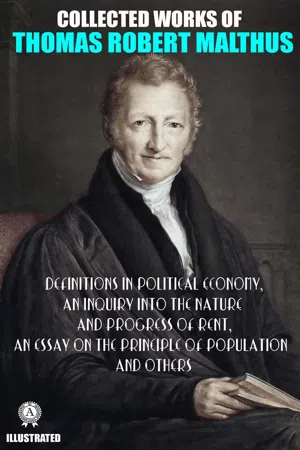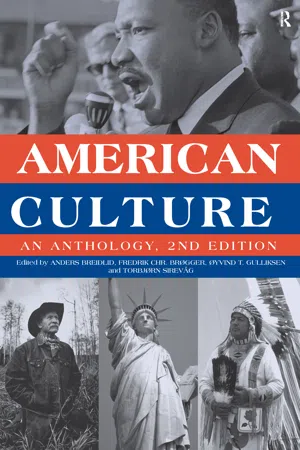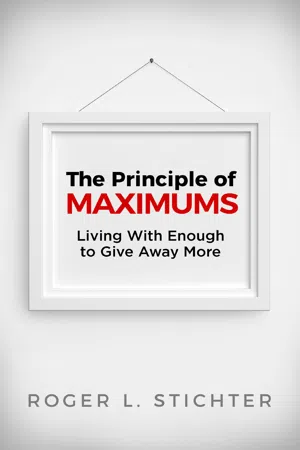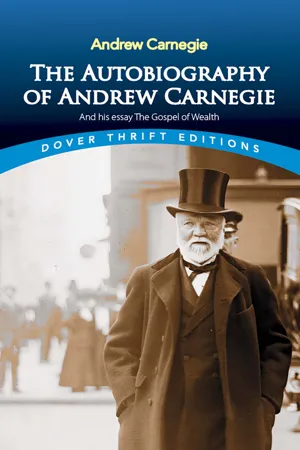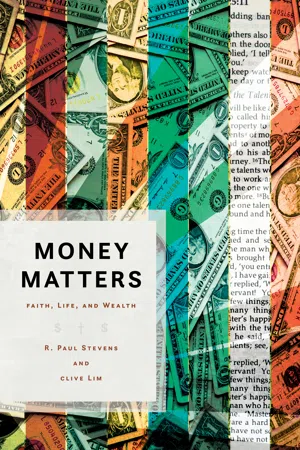History
Gospel of Wealth
The "Gospel of Wealth" was a concept popularized by industrialist Andrew Carnegie in the late 19th century. It argued that the wealthy had a responsibility to use their fortunes to benefit society, promoting philanthropy and social responsibility among the rich. Carnegie believed that the accumulation of wealth should be accompanied by a commitment to improving the welfare of others.
Written by Perlego with AI-assistance
Related key terms
Related key terms
1 of 4
Related key terms
1 of 3
5 Key excerpts on "Gospel of Wealth"
- eBook - ePub
Collected Works of Thomas Robert Malthus. Illustated
Definitions in Political Economy, An Inquiry into the Nature and Progress of Rent, An Essay on the Principle of Population and others
- Thomas Robert Malthus(Author)
- 2021(Publication Date)
- Strelbytskyy Multimedia Publishing(Publisher)
The Gospel of Wealth
by Andrew Carnegie
T he problem of our age is the proper administration of wealth, so that the ties of brotherhood may still bind together the rich and poor in harmonious relationship. The conditions of human life have not only been changed, but revolutionized, within the past few hundred years. In former days there was little difference between the dwelling, dress, food and environment of the chief and those of his retainers. The Indians are to-day where civilized man then was. When visiting the Sioux, I was led to the wigwam of the chief. It was just like the others in external appearance, and, even within, the difference was trifling between it and those of the poorest of his braves. The contrast between the palace of the millionaire and the cottage of the laborer with us to-day measures the change which has come with civilization.This change, however, is not to be deplored, but welcomed as highly beneficial. It is well, nay, essential for the progress of the race, that the houses of some should be homes for all that is highest and best in literature and the arts, and for all the refinements of civilization, rather than that none should be so. Much better this great irregularity than universal squalor. Without wealth there can be no Mæcenas. The “good old times” were not good old times. Neither master nor servant was as well situated then as to-day. A relapse to old conditions would be disastrous to both — not the least so to him who serves — and would sweep away civilization with it. But whether the change be for good or ill, it is upon us, beyond our power to alter, and therefore to be accepted and made the best of. It is a waste of time to criticise the inevitable.It is easy to see how the change has come. One illustration will serve for almost every phase of the cause. In the manufacture of products we have the whole story. It applies to all combinations of human industry, as stimulated and enlarged by the inventions of this scientific age. Formerly articles were manufactured at the domestic hearth or in small shops which formed part of the household. The master and his apprentices worked side by side, the latter living with the master, and therefore subject to the same conditions. When these apprentices rose to be masters, there was little or no change in their mode of life, and they, in turn, educated in the same routine succeeding apprentices. There was, substantially, social equality, and even political equality, for those engaged in industrial pursuits had then little or no political voice in the State. - eBook - ePub
American Culture
An Anthology
- Anders Breidlid, Fredrik Chr. Brøgger, Oyvind T. Gulliksen, Torbjorn Sirevag(Authors)
- 2013(Publication Date)
- Routledge(Publisher)
The Gospel of Wealth, but the influence of contemporary Social Darwinism (the idea that the fittest succeeded best in business as in life) is also strongly evident here. According to Carnegie (text 53), wealth is a burden that the rich must carry on behalf of those who are not clever or wise enough to make a fortune. In return, the rich should spend their fortunes for the benefit of mankind. In a way, this is a parallel to the late nineteenth-century colonial view that the white man had been saddled with the burden of civilizing the world’s savages by means of colonization.Carnegie’s book nonetheless illustrates the fact that, at the end of the nineteenth century, the United States had become a society of two nations, a rich and a poor. The squalor of the big cities had, for instance, been amply demonstrated in both the prose and the photographs of Jacob Riis’s How the Other Half Lives: Studies among the Tenements of New York (1890). At about the same time, the famous American sociologist Thorstein Veblen coined the phrase “conspicuous consumption” (1902). His criticism was directed at the practice of spending money lavishly on consumer goods. The issue was no longer whether America was a class society; it was instead whether this state of affairs was to be accepted as a “natural” result of the freedom of competition (as the Social Darwinists argued), or whether it was society’s task to remedy such evils in order to ensure people the right to freedom (as reformers and muckraking journalists suggested). In the wake of the Wall Street Crash and the Great Depression, Franklin D. Roosevelt asserted the latter and helped develop the modern American welfare state of social security. Despite their increasing affluence during the late 1940s and the 1950s, however, the American people discovered at the outset of the 1960s (as they had in the 1890s and the 1930s) that a significant portion – one-quarter or one-fifth – of the population was poor. In his book The Other America (1962), a title reminiscent of Riis’s work, Michael Harrington argued that the poor were caught in “a vicious circle of poverty,” a poverty that had become “a culture, an institution, a way of life,” and that there was “a language of the poor, a psychology of the poor, a world view of the poor.”2 - eBook - ePub
The Principle of Maximums
Living With Enough to Give Away More
- Roger Stichter(Author)
- 2019(Publication Date)
- BMH Books(Publisher)
David Platt, author of Radical: Taking Back Your Faith from the American Dream, says, “We stand amid an American dream dominated by self-advancement, self-esteem, and self-sufficiency, by individualism, materialism, and universalism.” 1 Indeed, our culture fights against what Jesus taught. As Christians here, most of us probably live with “comfortable guilt.” 2 Comfortable guilt is when we are aware we should and could give away more money to do good for others, but we are not motivated enough to make the sacrifices in our own lifestyles to do so. I believe Platt is correct. Most Christians in the United States are willing to live with the guilt of knowing they could be more generous but not willing to live without the luxuries our society affords us. This is the crux of the matter. Andy Stanley writes in his book, How to Be Rich, how many people tend to get so absorbed in trying to get rich that they don’t recognize they are already rich. When people can finally recognize they are already rich, then they are able to be good at being rich, which means they can become better at being generous. 3 The Bible teaches us a lot about money. And I mean a lot ! I won’t take time here to cover everything, but I believe covering some important Scriptures from both the Old and New Testaments that teach some basic financial concepts will be helpful to understand God’s intention for money. Let’s start with Jesus, as His teachings give us a picture of God’s heart. JESUS’ TEACHINGS ON MONEY Choose Whom You Will Serve In Matthew 4, Satan offers Jesus the world, but Jesus’ response is that we should worship and serve God alone (vv. 8, 9). Later, in Matthew 6:24, Jesus says essentially the same thing—we cannot serve both God and Money. We must choose. Either we serve something based in this world, or we serve someone who is concerned with more than this world - Andrew Carnegie(Author)
- 2014(Publication Date)
- Dover Publications(Publisher)
CHAPTER XIXTHE “Gospel of Wealth”
AFTER MY BOOK , “The Gospel of Wealth,”1 was published, it was inevitable that I should live up to its teachings by ceasing to struggle for more wealth. I resolved to stop accumulating and begin the infinitely more serious and difficult task of wise distribution. Our profits had reached forty millions of dollars per year and the prospect of increased earnings before us was amazing. Our successors, the United States Steel Corporation, soon after the purchase, netted sixty millions in one year. Had our company continued in business and adhered to our plans of extension, we figured that seventy millions in that year might have been earned.Steel had ascended the throne and was driving away all inferior material. It was clearly seen that there was a great future ahead; but so far as I was concerned I knew the task of distribution before me would tax me in my old age to the utmost. As usual, Shakespeare had placed his talismanic touch upon the thought and framed the sentence—“So distribution should undo excess, And each man have enough.”At this juncture—that is March, 1901—Mr. Schwab told me Mr. Morgan had said to him he should really like to know if I wished to retire from business; if so he thought he could arrange it. He also said he had consulted our partners and that they were disposed to sell, being attracted by the terms Mr. Morgan had offered. I told Mr. Schwab that if my partners were desirous to sell I would concur, and we finally sold.There had been so much deception by speculators buying old iron and steel mills and foisting them upon innocent purchasers at inflated values—hundred-dollar shares in some cases selling for a trifle—that I declined to take anything for the common stock. Had I done so, it would have given me just about one hundred millions more of five per cent bonds, which Mr. Morgan said afterwards I could have obtained. Such was the prosperity and such the money value of our steel business. Events proved I should have been quite justified in asking the additional sum named, for the common stock has paid five per cent continuously since.2- eBook - ePub
Money Matters
Faith, Life, and Wealth
- R. Paul Stevens, Clive Lim(Authors)
- 2021(Publication Date)
- Eerdmans(Publisher)
Why isn’t everyone in the church a millionaire?” In the Time magazine interview, Milmon Harrison of the University of California at Davis, author of the book Righteous Riches, often sees the prosperity gospel as “another form of the church abusing people so ministers could make money.” 45 But the prosperity gospel will not go away as long as the quest for the American Dream continues. Another interviewee, Edith Blumhofer, late director of Wheaton College’s Center for the Study of American Evangelicals, observes that Protestantism over time has quietly adopted the idea that “you don’t have to give up the American Dream. You just see it as a sign of God’s blessing.” 46 The Puritans combined religious insecurity with hard work, thrift and honesty to create the Protestant work ethic. Contemporary Christians combined religious aspiration with optimism, upward mobility, materialism and well-being to create the prosperity gospel movement. Not surprisingly the movement has gone global. The Globalization of the Prosperity Gospel Globalization has made the American Dream and middle-class aspirations worldwide pursuits. Following in their path is the increasing adoption of the prosperity gospel by churches in the two-thirds world, especially among the poor, where it purports to offer hope and optimism. In a Pew Forum survey of Pentecostals in ten countries covering America, Latin America, Africa, and Asia, respondents were asked whether God “will grant material riches if one has enough faith.” The majority answer is a resounding yes. In Latin America 64 percent agree, in Africa 83 percent agree, and in Asia 82 percent agree. 47 Randy Alcorn, reflecting on prosperity and eternity, notes, The health and wealth gospel will thrive in North America, Western Europe, Korea, Japan, Singapore, and other economically progressive counties
Index pages curate the most relevant extracts from our library of academic textbooks. They’ve been created using an in-house natural language model (NLM), each adding context and meaning to key research topics.
Explore more topic indexes
Explore more topic indexes
1 of 6
Explore more topic indexes
1 of 4
